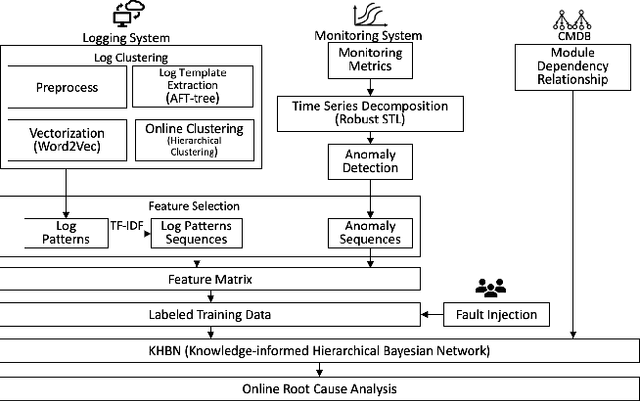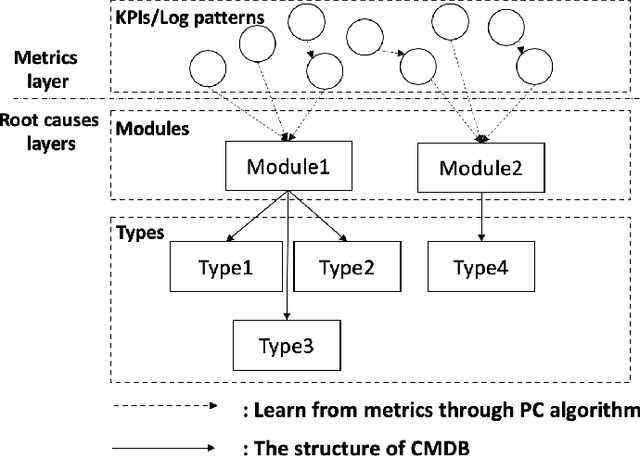Huajie Qian
AHPA: Adaptive Horizontal Pod Autoscaling Systems on Alibaba Cloud Container Service for Kubernetes
Mar 07, 2023Abstract:The existing resource allocation policy for application instances in Kubernetes cannot dynamically adjust according to the requirement of business, which would cause an enormous waste of resources during fluctuations. Moreover, the emergence of new cloud services puts higher resource management requirements. This paper discusses horizontal POD resources management in Alibaba Cloud Container Services with a newly deployed AI algorithm framework named AHPA -- the adaptive horizontal pod auto-scaling system. Based on a robust decomposition forecasting algorithm and performance training model, AHPA offers an optimal pod number adjustment plan that could reduce POD resources and maintain business stability. Since being deployed in April 2021, this system has expanded to multiple customer scenarios, including logistics, social networks, AI audio and video, e-commerce, etc. Compared with the previous algorithms, AHPA solves the elastic lag problem, increasing CPU usage by 10% and reducing resource cost by more than 20%. In addition, AHPA can automatically perform flexible planning according to the predicted business volume without manual intervention, significantly saving operation and maintenance costs.
CloudRCA: A Root Cause Analysis Framework for Cloud Computing Platforms
Nov 05, 2021



Abstract:As business of Alibaba expands across the world among various industries, higher standards are imposed on the service quality and reliability of big data cloud computing platforms which constitute the infrastructure of Alibaba Cloud. However, root cause analysis in these platforms is non-trivial due to the complicated system architecture. In this paper, we propose a root cause analysis framework called CloudRCA which makes use of heterogeneous multi-source data including Key Performance Indicators (KPIs), logs, as well as topology, and extracts important features via state-of-the-art anomaly detection and log analysis techniques. The engineered features are then utilized in a Knowledge-informed Hierarchical Bayesian Network (KHBN) model to infer root causes with high accuracy and efficiency. Ablation study and comprehensive experimental comparisons demonstrate that, compared to existing frameworks, CloudRCA 1) consistently outperforms existing approaches in f1-score across different cloud systems; 2) can handle novel types of root causes thanks to the hierarchical structure of KHBN; 3) performs more robustly with respect to algorithmic configurations; and 4) scales more favorably in the data and feature sizes. Experiments also show that a cross-platform transfer learning mechanism can be adopted to further improve the accuracy by more than 10\%. CloudRCA has been integrated into the diagnosis system of Alibaba Cloud and employed in three typical cloud computing platforms including MaxCompute, Realtime Compute and Hologres. It saves Site Reliability Engineers (SREs) more than $20\%$ in the time spent on resolving failures in the past twelve months and improves service reliability significantly.
* Accepted by CIKM 2021; 10 pages, 3 figures, 12 tables
Learning Prediction Intervals for Regression: Generalization and Calibration
Feb 26, 2021



Abstract:We study the generation of prediction intervals in regression for uncertainty quantification. This task can be formalized as an empirical constrained optimization problem that minimizes the average interval width while maintaining the coverage accuracy across data. We strengthen the existing literature by studying two aspects of this empirical optimization. First is a general learning theory to characterize the optimality-feasibility tradeoff that encompasses Lipschitz continuity and VC-subgraph classes, which are exemplified in regression trees and neural networks. Second is a calibration machinery and the corresponding statistical theory to optimally select the regularization parameter that manages this tradeoff, which bypasses the overfitting issues in previous approaches in coverage attainment. We empirically demonstrate the strengths of our interval generation and calibration algorithms in terms of testing performances compared to existing benchmarks.
 Add to Chrome
Add to Chrome Add to Firefox
Add to Firefox Add to Edge
Add to Edge